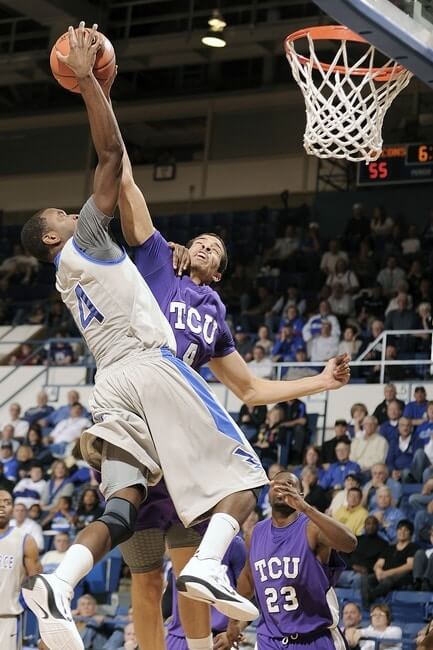On August 8, 2014, the National Collegiate Athletic Association (NCAA) experienced a major blow to its long-held policy of keeping college athletes uncompensated amateurs. The United States District Court for the Northern District of California ruled that the NCAA rules prohibiting student athletes from receiving compensation for the use of their own names, images, and likenesses violate the Sherman Antitrust Act. Student athletes are not employees of their colleges, but they may be entitled to share in licensing fees earned on their names and likenesses.
Athletes Claim That The NCAA Rules Violate Federal Antitrust Laws
Ed O’Bannon, a former collegiate basketball player for the University of California, Los Angeles (UCLA), and other current and former collegiate athletes filed a complaint against the NCAA, alleging the NCAA rule in question violated the Sherman Antitrust Act as an unreasonable restraint on trade. The rule prevents Division 1 basketball and football athletes from receiving a share of the revenue their schools and the NCAA earn from licensing agreements to use their names, images, and likenesses in video games, telecasts, and other marketing. The athletes claimed they should not be prohibited from personally sharing in the profit from the use of their names, images, and likeness.
The District Court’s Decision
The District Court agreed with Mr. O’Bannon and the other athletes. The District Court held that the NCAA rules violate the Sherman Antitrust Act as an unreasonable restraint on trade. The Court noted that the NCAA rules restrain competition in the college education market and the group licensing market. The Court then entered a permanent injunction prohibiting the NCAA from enforcing these rules. The injunction will apply to the next basketball and football recruiting cycle.
Put simply, the Court’s ruling allows colleges to pay their basketball and football players. Colleges don’t have to, but they may. Specifically, under the Court’s ruling, student athletes may be compensated in one of two ways. First, universities and colleges may award stipends to student athletes for the use of their names, images, and likenesses. These stipends, however, may not exceed the athletes’ cost of attendance. Second, NCAA members may now hold a portion of licensing payments in a trust to be distributed to student athletes at the end of their eligibility period.
The Court’s decision also limits athletes’ compensation for the use of their names and likenesses. The Court will not allow NCAA athletes to earn additional money from personally endorsing products. The Court found that allowing such endorsements would undermine the NCAA’s efforts to protect against the commercial exploitation of student athletes.
The Case Is Not Over Just Yet
Collegiate athletes will certainly not become millionaires because of the District Court’s ruling. However, these athletes may now receive compensation in the form of stipends to assist with their tuition and other living expenses.
The NCAA is not yet willing to give up its rules protecting amateurism. The NCAA has stated it disagrees with the District Court’s opinion and plans to appeal the ruling to the Ninth Circuit Court of Appeals. We will have to wait to see whether the Ninth Circuit Court of Appeals agrees with the District Court.
The post College Athletes Are Not Employees But May Share Licensing Fees appeared first on Robert A. Klingler.


